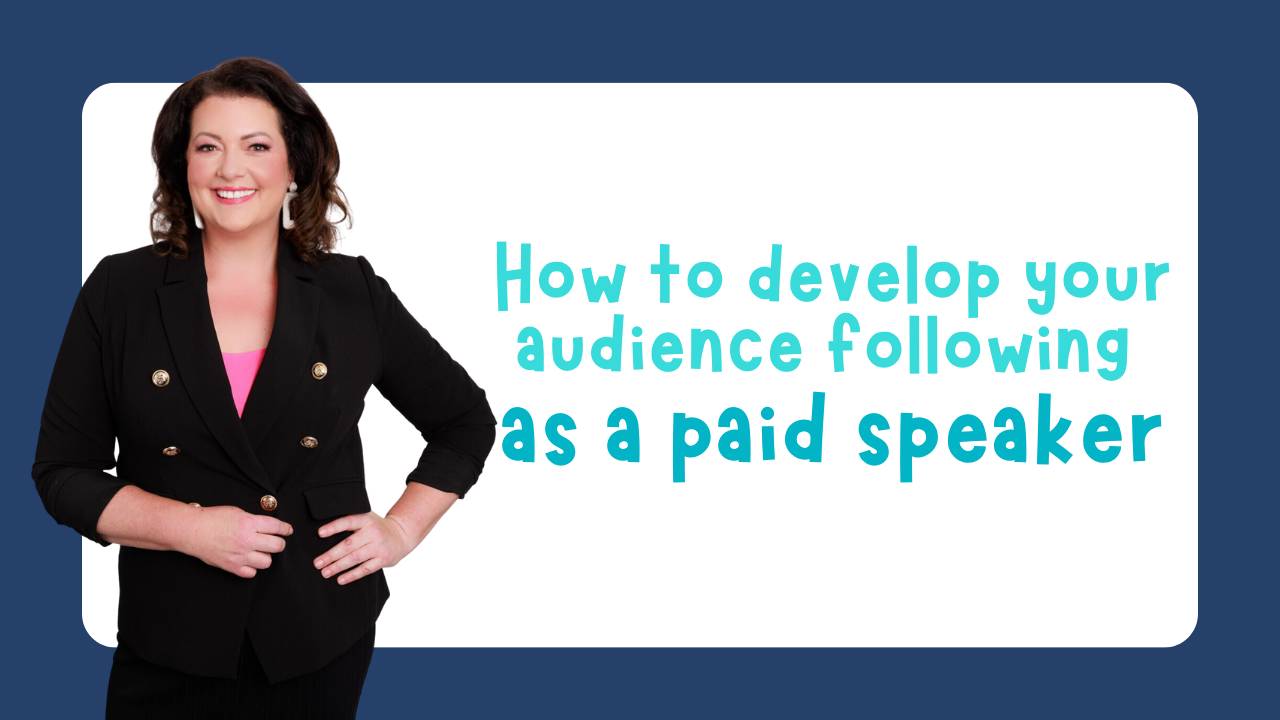How to develop your audience following as a paid speaker

The realm of paid speaking is competitive, and while delivering a captivating talk is essential, there's another facet that's equally vital: building a loyal community. A devoted audience can be the difference between sporadic gigs and a consistent calendar of engagements. This community not only amplifies your message but also opens doors to newer opportunities.
So, how does a paid speaker go about cultivating such an audience? Here's a roadmap for you:
1. Establish Your Niche
In the world of paid speaking, specificity is an asset. What topics or industries do you specialise in? Do you offer motivational talks, industry insights, or technical expertise? Carving out a niche allows you to attract a targeted audience, creating a deeper and more meaningful connection.
2. Leverage Social Media
In today’s digital age, your talk shouldn’t end when you step off the stage. Use platforms like Twitter, LinkedIn, or Instagram to continue the conversation. Share snippets from your talks, engage with attendees, and promote upcoming events. Social media is also an excellent platform for gathering feedback and gauging audience interest in specific topics.
3. Create Valuable Content
Apart from your speaking engagements, consistently offer value to your community. Start a blog, podcast, or YouTube channel. This content can be related to your talks or can explore related areas. For instance, if you’re a speaker on leadership, a podcast interviewing industry leaders can be a great supplement.
4. Network, Network, Network
As a speaker, your network is a goldmine. Engage with other speakers, event organisers, and attendees. Join speaker associations or groups in your niche. These connections can lead to referrals, collaborations, and a deeper understanding of your industry.
5. Offer Workshops and Webinars
Expand your portfolio beyond keynote addresses. Offering workshops or webinars not only provides additional revenue streams but also allows for more in-depth interaction with your audience. Such sessions can be more intimate, fostering stronger community ties.
6. Develop a Mailing List
While social media is powerful, email remains one of the most direct ways to reach your audience. Encourage attendees and online visitors to subscribe to your newsletter. Regular updates, behind-the-scenes content, or exclusive insights can keep your audience engaged between events.
7. Seek Feedback Actively
Growth is built on feedback. After each session, seek evaluations. Understand what resonated with the audience and what didn’t. This iterative process not only refines your talks but also demonstrates to your community that their opinion matters.
8. Collaborate with Fellow Speakers
Cross-promotion can be a boon. Partner with speakers who cater to a similar audience but offer different perspectives or expertise. Guest appearances, joint workshops, or panel discussions can introduce you to newer audiences and enrich your community.
9. Attend Conferences as a Participant
Being a speaker doesn’t mean you're always on the stage. Sometimes, being an attendee can provide fresh insights and allow for casual networking. Engage in discussions, attend workshops, and be an active part of the community.
10. Personal Branding
In many ways, as a paid speaker, you are the product. Invest in your personal branding. This goes beyond just a professional headshot. Develop a cohesive brand voice, create a professional website, and ensure that your online presence mirrors the expertise and authority you bring to the stage.
Building a community as a paid speaker is about more than just numbers. It's about fostering genuine connections, offering consistent value, and positioning yourself as an authority in your niche. A loyal audience not only boosts your speaking engagements but also provides a platform for feedback, growth, and evolution. In the words of motivational speaker Simon Sinek, "People don't buy what you do; they buy why you do it." Make sure your 'why' resonates with your community, and you'll have an audience that sticks with you through every stage of your speaking journey.


